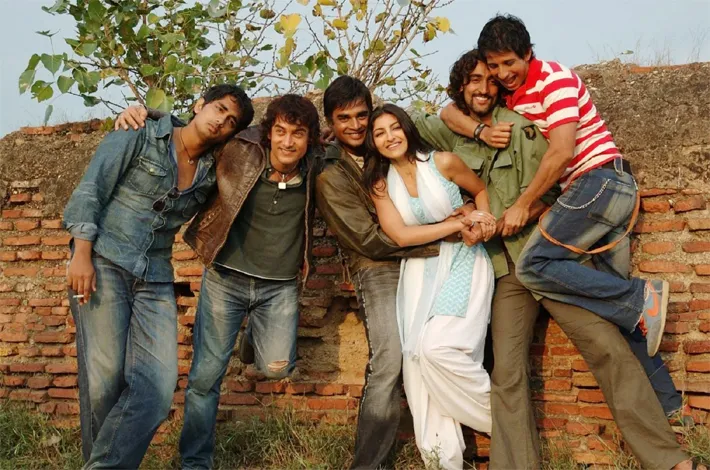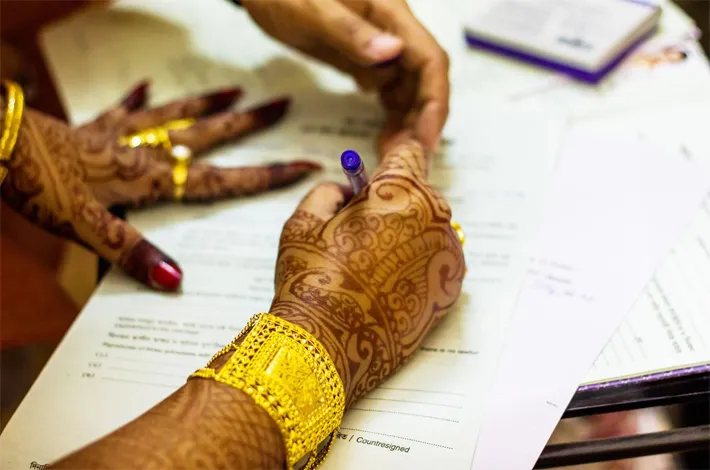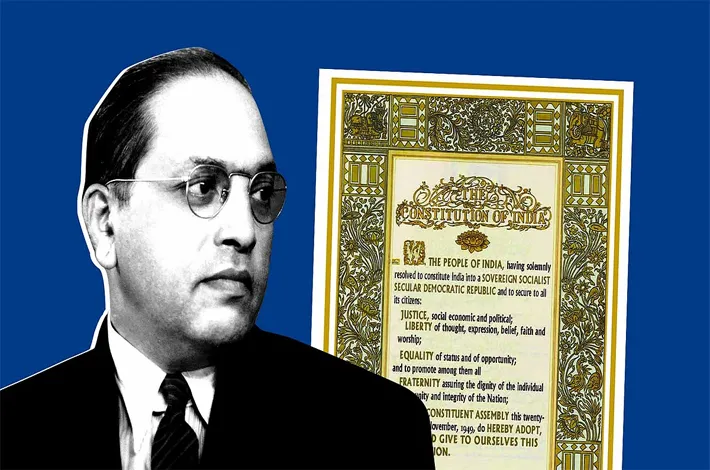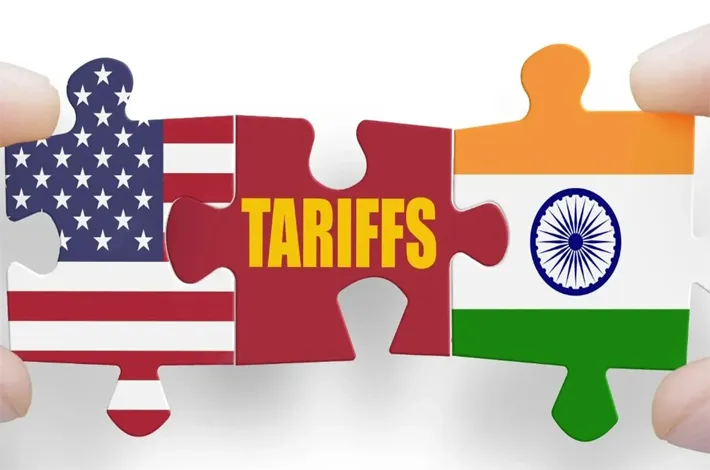Former CJ Sushila Karki Emerges as Interim Leader
11-09-2025 12:00:00 AM
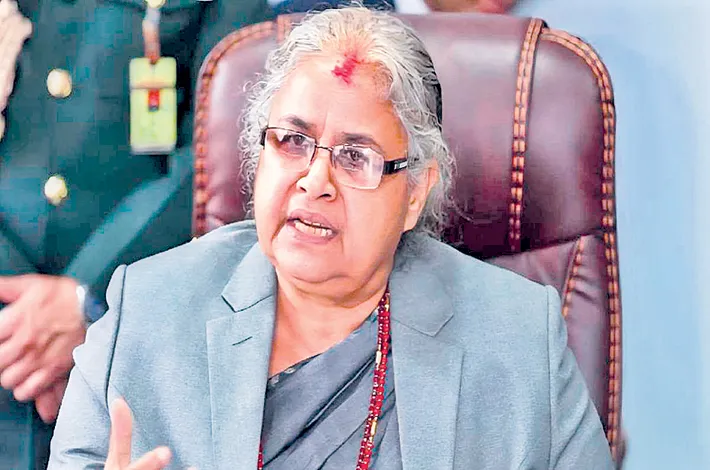
Nepal's Gen Z Uprising
In a stunning twist to Nepal's escalating political crisis, youth-led protesters known as the "Gen Z movement" have selected former Supreme Court Chief Justice Sushila Karki as their preferred interim head of government. The 73-year-old jurist, celebrated for her anti-corruption stance and judicial independence, was chosen in a virtual meeting attended by over 5,000 young participants, marking a pivotal moment in the nation's youth-driven revolt against entrenched elite corruption.
The decision comes after days of violent protests that have left at least 30 dead and over 1,000 injured, forcing Prime Minister K.P. Sharma Oli to resign on September 9 and flee the country. Demonstrators, many under 28 and waving national flags in school uniforms, stormed Parliament, the Supreme Court, and the presidential residence, setting fire to government buildings and politicians' homes. The unrest, which began on September 4 with a government ban on 26 social media platforms including Facebook, X, YouTube, and Instagram, has evolved into a broader demand for systemic reform.
What ignited the fury? The social media shutdown was perceived as an attempt to silence a viral "Nepo Kid" trend exposing the lavish lifestyles of politicians' children amid Nepal's per capita income of just $1,400 annually. With a median population age of 25 and high youth unemployment, Gen Z's frustration boiled over into calls for an end to nepotism, accountability for corruption scandals like the 2017 Airbus deal, and fresh elections.
"This is about more than the ban—it's about silencing our voices," said protester Subhana Budhathoki, a content creator, echoing sentiments shared across platforms like Discord before the blackout.
The protests turned deadly on September 8 when security forces fired live rounds, rubber bullets, and tear gas at crowds outside Parliament in Kathmandu, killing 19 in the capital alone and two more in Itahari. Among the victims was Rajyalaxmi Chitrakar, wife of former Prime Minister Jhalanath Khanal, who died after protesters set her home ablaze. Over 1,033 injuries were reported, with graphic videos of students in uniforms being shot circulating online, drawing international condemnation from the UN Human Rights Office for "disproportionate use of force." Curfews were imposed nationwide, airports closed, and the Nepal Army deployed troops to restore order, with Chief General Ashok Raj Sigdel appealing for dialogue in a televised address.
Initially leaderless and organic, the movement organized via online forums. Early favorites included popular rapper and Kathmandu Mayor Balendra Shah, known as "Balen," whose anti-corruption lyrics like those in "Balidan" ("All leaders are thieves, looting the nation") resonated with youth. Shah, 35, a former structural engineer who studied in India and won the mayoralty as an independent in 2022, voiced support but was sidelined due to his age and perceived political ties. Another early contender was rapper "Karen Shah," but the name appears to be a misreference to Balen Shah, as no prominent figure by that exact name emerged in reports; instead, Shah's hip-hop background fueled speculation of youth icons leading the charge. In a four-hour Zoom session on September 10, participants using anime avatars rejected politically affiliated youth, voting Karki with 31% support—edging out Shah's 27%—for her neutrality.
Born in 1952 in Biratnagar, Karki broke barriers as Nepal's first female Chief Justice in 2016, serving until 2017. Educated at Tribhuvan University (LLB, 1978) and Banaras Hindu University (MA in Political Science, 1975), she began her career as a lawyer in 1979, rising to senior advocate in 2007 and Supreme Court justice in 2010. Her tenure featured landmark rulings on corruption, transitional justice, and women's rights, including granting Nepali mothers citizenship transmission rights, challenging patriarchal norms. She convicted a sitting minister on graft charges and overturned a politically motivated police appointment, earning the moniker "anti-corruption crusader." Controversy struck in 2017 when
Parliament impeached her for alleged bias, but public outcry and a Supreme Court order quashed it.
Post-retirement, Karki remained apolitical, authoring "Nyaya" (2018 autobiography) and "Kara" (2019 novel based on her Panchayat-era imprisonment). Married to Nepali Congress youth leader Durga Prasad Subedi, whom she met at BHU, she has stayed neutral, making her an ideal bridge between protesters and institutions. "We need someone knowledgeable about the law to maintain order," a student protester remarked.
Karki, consulted by phone, expressed willingness to serve until elections, securing over 2,500 signatures of support.
Gen Z delegates met Army Chief Sigdel, a 1967-born general trained in India and China, on September 10 to formalize her role. Sigdel, who urged Oli's resignation to de-escalate, has deployed forces while calling for peace. If approved by President Ram Chandra Paudel (who also resigned but awaits confirmation), Karki would lead a transitional administration, prioritizing anti-corruption probes and elections.
The economic toll is severe: $15-20 million in damages, airport closures stranding thousands, and a 50-70% tourism plunge. India has issued travel advisories, suspended bus services, and heightened border security, with PM Narendra Modi expressing anguish over the violence. Regional experts see parallels to Bangladesh and Sri Lanka uprisings, warning of foreign influences amid U.S.-China rivalry.
As curfews lift selectively and cleanup begins—with Gen Z volunteers aiding the army—Karki's selection signals a generational shift. "Gen Z will not stop until change is real," vowed leader Rakshya Bam. Yet, factionalism lingers, with some pushing Shah or activist Harka Sampang. Nepal teeters on the brink: Will Karki stabilize the nation, or will unrest reignite? The youth's roar demands answers.





